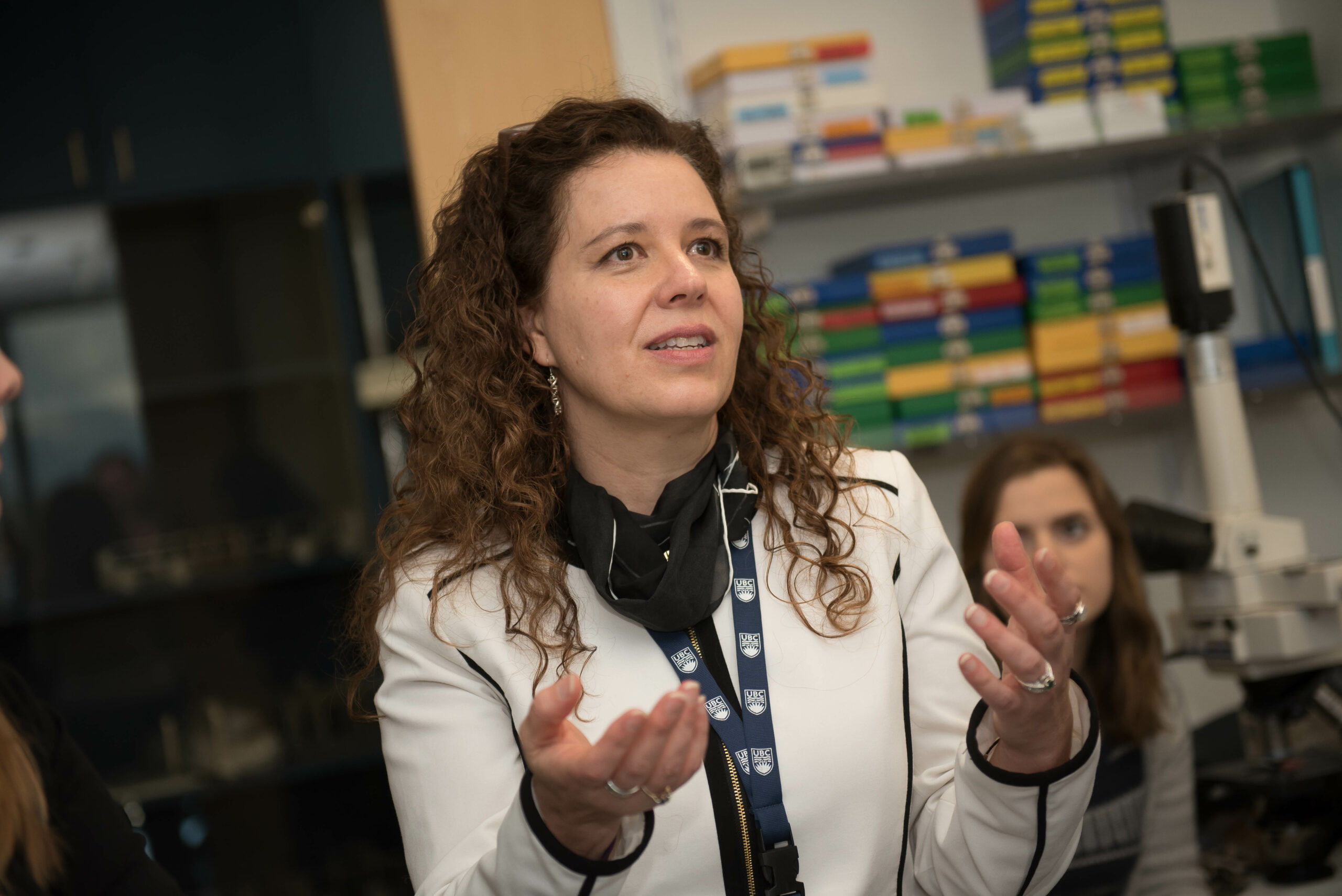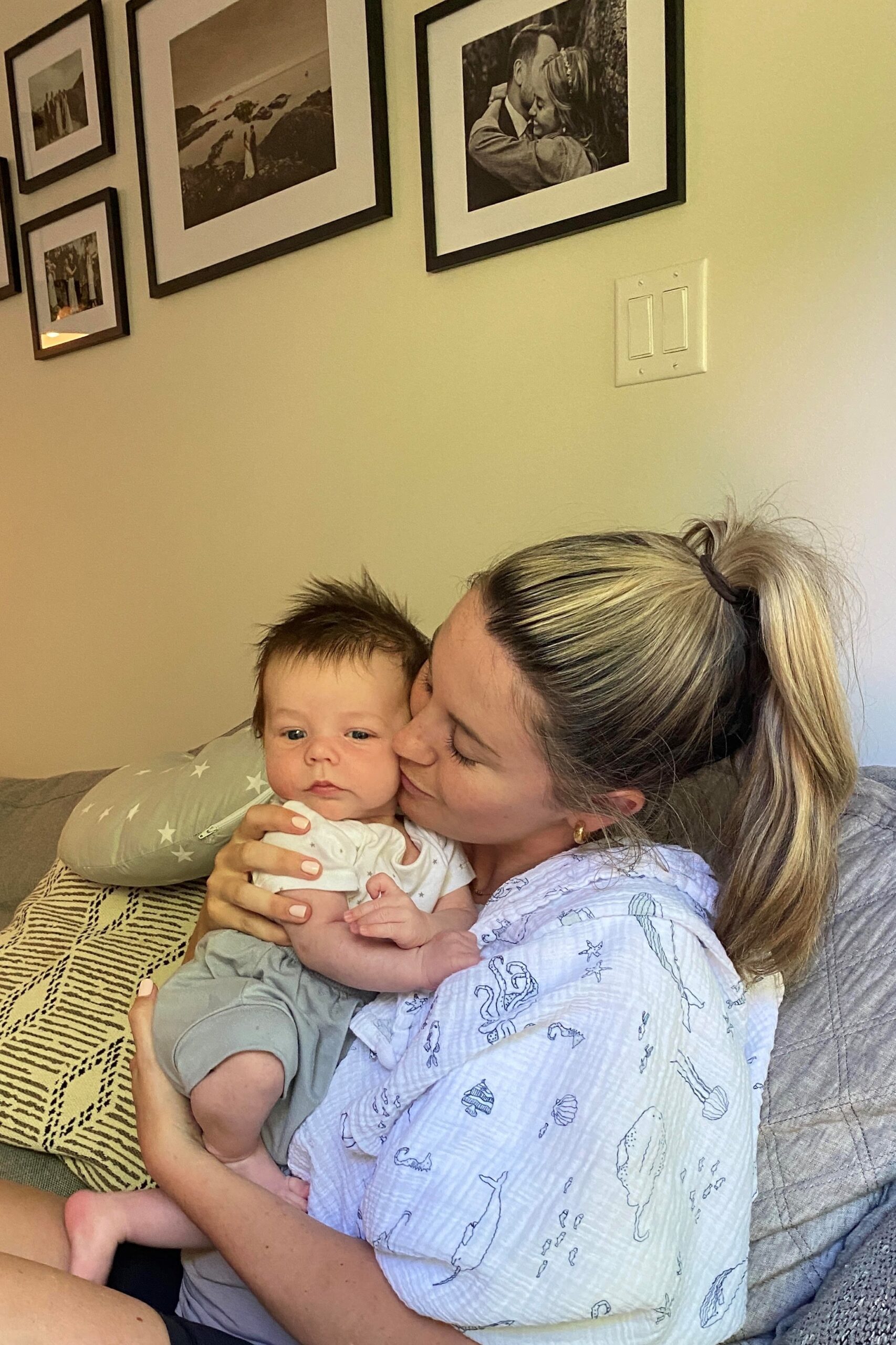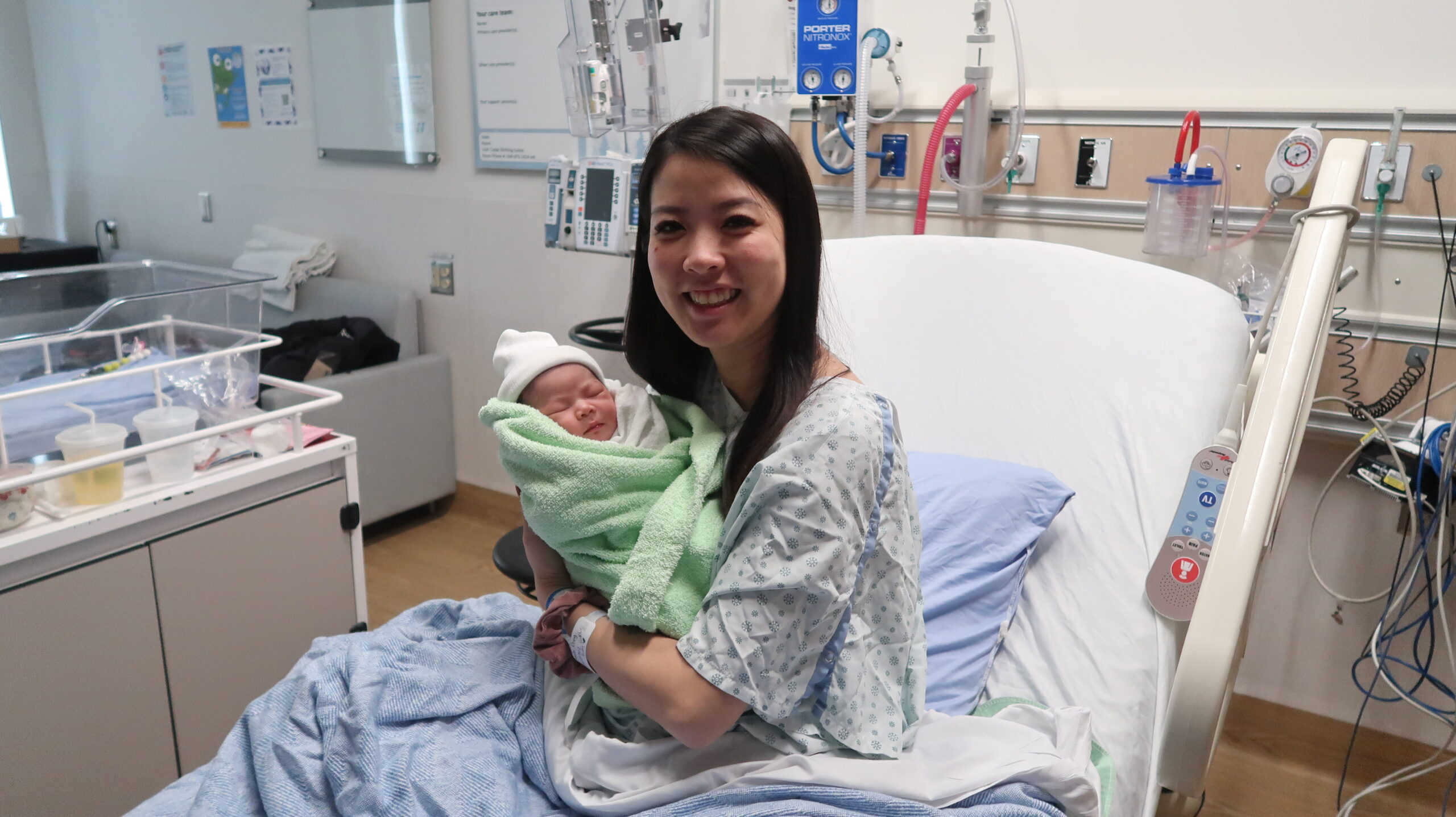
In recognition of International Day of Women and Girls in Science, we are profiling women researchers who are doing important work in women’s health. We asked these researchers a few questions including Dr. Liisa Galea, author of The Research Divide, UBC Professor of Psychology, and Scientific Advisor at Women’s Health Research Institute.
Tell us about yourself.
I’m a Professor in Psychology, affiliated member in Psychiatry, member of the Djavad Mowafaghian Centre for Brain Health, at the University of British Columbia and a Scientific Advisor at Women’s Health Research Institute. I am the lead for the Women’s Health Research Cluster at UBC with over 230 members worldwide, editor of a top endocrinology journal and in the top 5% of the cited researchers worldwide. The main goal of my research is to improve brain health for women and men by examining the influence of sex and sex hormones on normal and diseased brain states such as depression and Alzheimer’s disease.
Provide a description of your latest research project.
We are working on several projects now that we are excited about:
1) We examine how biological sex and genotype influences the plasticity of an area of the brain called the hippocampus, which is one of the first regions affected by Alzheimer’s Disease. We have found that biological sex influences neurogenesis (the formation of new brain cells) in the hippocampus and will now examine how genetic differences that increase susceptibility to AD influences this plasticity.
2) We examine how pregnancy affects the brain in the short and long term to increase susceptibility to depression in the short term and cognitive decline in the long term. We find that inflammation, metabolism and neuroplasticity are very different after pregnancy in both the short and long term and now we are studying how these changes contribute to these declines.
Why did you decide to focus your work on women’s health research?
Almost 30 years ago I noticed when I was starting out doing my Bachelor’s degree in university that there were very few studies in females and women and I embarked on a mission to change that. I really dedicated my career to studying females and sex differences to better understand how hormones (estrogens, androgens, stress) impacted brain health. Why are women more likely to get Alzheimer’s disease? Why are women more at risk for depression? What is it about our biology that makes us more susceptible? These are the questions that have driven my research. That has been my mission in life and dare I say I am shedding a light on these questions. I am delighted to see more and more studies on these topics.
What are your thoughts on the bias in women’s health research showcased in The Research Divide, including:
- Women’s health research is funded less often, for shorter terms, and lower funding amounts.
- Women researchers are less likely to receive funding than men
- Women academics have lower salaries, receive less institutional funding opportunities, and are underrepresented in senior positions.
- Women are less visible in academia (publications, symposia, conferences, research prizes)
What surprised me the most about working on this report is how LITTLE funding there is that is awarded for research on women’s health. I knew it would not be a high percentage, but I was not expecting it to be below 10%. I was devastated to see the funding amounts lower as well. It’s hard enough to get a federal research grant from CIHR as success levels are at 15% (meaning many grants go unfunded) but to then see that the funding levels were about 50k less per year for women researchers compared to men researchers was well – soul crushing. Once again it feels as though we need to do more with less.
There is data to indicate that women need to be 2.5x more productive than men to be seen in the same category of competence – I can’t tell you how often I have lived this and felt this. I keep pushing on as it was an early lesson my own mother taught me to forge on and frankly I believe in my work so passionately I am resolute to continue. Still I’d like to make it a little fairer out there and one way to do so is to have dedicated funding for women’s health research which is why the BC Women’s Health Foundation’s efforts are so important. We need to level that playing field towards equity in health and health research.
How has your research or research funding been affected by the COVID-19 pandemic?
My laboratory and I have been extremely fortunate to be able to continue working once the initial lockdown lifted. When research shut down at the university because of the pandemic but remained open to those studying COVID-19, I knew this would be a challenge. What does research related to COVID-19 really mean? Studying the infectious disease is one thing (the mode of transmission or how it infects people, who is most affected, what parts of our body does it target, what treatments might there be) but of course the pandemic public health measures themselves were going to affect people and that was important to study too.
In my laboratory, we have been studying how signalling in the immune system might be affected by age and hormonal status in females. Given that COVID-19 attacks the immune system, we knew our work could be informative even if we didn’t directly study infectious diseases. I also contributed to a study through WHRI to conduct a survey to understand the public health measures on mental health and our reproductive health. This work could be done remotely and we obtained permission to continue our work on inflammation and stress effects on the brain, albeit with safety measures in place.
What impact do you intend to have on women’s health with your research?
My goal is to improve brain health for women with depression and Alzheimer’s disease. When I started researching postpartum depression there were only a handful of studies out there. Now there are many researchers all over the world studying perinatal depression. I am proud to be the first to create preclinical models to study the biological variables that contribute to this time of susceptibility.
I want to empower researchers to study women’s health issues and donors to recognise this is an understudied and underfunded field. This is a tragedy as we are missing ½ the population.
We live in a world with many competing priorities. What excites you most about having others recognize your research as a valuable investment?
I am very hopeful that the world understands the need for research right now. We don’t know where the next great discovery is coming from and we don’t know what or when the next great challenge will come from. The reason that we have effective vaccines so quickly is because there were a handful of researchers studying bat coronaviruses and mRNA vaccines for diseases such as Ebola and Zika. If this research hadn’t been funded we would not be so far ahead.
We cannot afford to put all of our eggs in one basket – to use a cliché. Research simply saves lives. Many of us are studying pieces of the puzzle that we hope one day will lead to improvements in disease treatment and cures. Research also funds jobs and education – two other things that are so important to our societies. So, I hope the world is going to embrace the need for a knowledge economy and the importance of continuing to support research for a better world.
You can double your impact this February and give researchers like Dr. Galea the support they deserve to study the unique health needs of women. From now until February 28, your gifts to the Women’s Health Research Fund will be matched by the Auxiliary to BC Women’s Hospital + Health Centre, up to $27,500. This could mean two fully-funded Catalyst Grant awards to kick-start the research process and support the next generation of women’s health researchers in the province.
BC Women’s Health Foundation is BC’s largest non-profit organization dedicated to advancing the full spectrum of women’s health. The information shared is intended to educate, inform, and point readers to credible sources. It is not intended to substitute professional medical advice.



